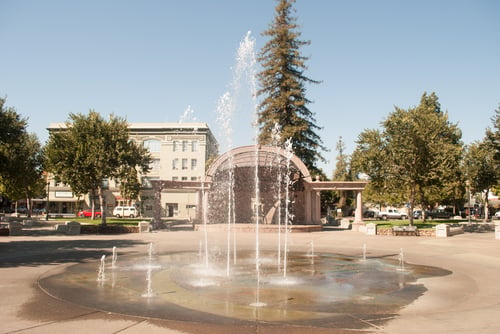America is becoming more “post-Christian.”
In cities across the nation, a growing secularism is widening the divide between Christians and those who don’t believe in Jesus.
The results of a survey published this month by Barna, Chico/Redding areas rank the 19th highest “post-Christian” city in America. To qualify as “post-Christian,” individuals had to meet nine or more of the following factors. “Highly post-Christian” individuals meet 13 or more of the factors (out of these 16 criteria).
- Do not believe in God
- Identify as atheist or agnostic
- Disagree that faith is important in their lives
- Have not prayed to God (in the last week)
- Have never made a commitment to Jesus
- Disagree the Bible is accurate
- Have not donated money to a church (in the last year)
- Have not attended a Christian church (in the last 6 months)
- Agree that Jesus committed sins
- Do not feel a responsibility to “share their faith”
- Have not read the Bible (in the last week)
- Have not volunteered at church (in the last week)
- Have not attended Sunday school (in the last week)
- Have not attended religious small group (in the last week)
- Bible engagement scale: low (have not read the Bible in the past week and disagree strongly or somewhat that the Bible is accurate)
- Not Born Again
You can read more about “The Most Post-Christian Cities in America: 2019” at Barna.com
In another Barna group survey, 28% of people said they don’t have spiritual conversations very often for these and a lot of reasons:
- Religious conversations always seem to create tension or arguments: 28%
- I’m not religious and don’t care about these kinds of topics: 23%
- I’m put off by how religion has been politicized: 17%
- I don’t feel like I know enough to talk about religious or spiritual topics: 17%
- I don’t want to be known as a religious person: 7%
- I don’t know how to talk about religious or spiritual topics without sounding weird: 6%
- I’m afraid people will see me as a fanatic or extremist: 5%
- I’m embarrassed by the way religious language has been used in popular culture: 5%
- I’ve been hurt by religious conversations in the past: 4%
- Religious language and jargon feels cheesy or outdated: 4%
Chico is a city that needs Jesus more than ever.
These statistics tell me that Jesus followers are nervous, tentative and slow to speak about their faith. Our friends in the millennial generation (born 1980-2000) were much more likely to say they were afraid that others would see them as an extremist.
Paul said this in his letter to the church in Rome,
I am not ashamed of the gospel, because it is the power of God for the salvation of everyone who believes: first for the Jew, then for the Gentile. Romans 1:16 (NIV)
The reason Paul seems to be giving for his boldness is that He truly believes that God has the power to save, change, and heal every person.
Here are some questions to ask yourself:
Do you share that same belief that the good news is really good news for others?
What answer would you give for why you don’t have more spiritual conversations?
What is holding you back from sharing what you believe with others or sharing how Jesus has changed your life?
What will it take for you to grow in your boldness?
If you are a Jesus follower, I want to challenge you today to ask the Holy Spirit for strength and boldness to have conversations with others about your faith. No one is asking you to do a “sales pitch” for Jesus – He’s so amazing, all people need to hear is a testimony on how powerful and loving He really is.
May we be a people who are known by others as Jesus followers, so that when they are ready to have a conversation, they will know we are unafraid to connect with them about faith.
Please join us this Sunday morning for one service in the Dome at 10:30am as we look at Matt. 5:38-42




